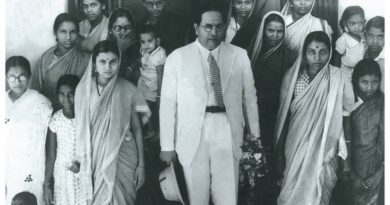Kerala’s Akshaya Model: e-literacy bound
Daniel, a 70-year-old retired professor talks about how the digital world has made his life at ease. The Akshaya centre located one kilometre away from his home is a perk for him. Earlier he had to spend a day to pay for utility services like telephone, water and power after travelling miles and waiting in long queues for hours. But today everything happens within seconds at the click of a mouse. Thus, once a weary task has now become an interesting one.
Akshaya model is a groundbreaking project implemented in the state of Kerala. The model aims at bridging the digital divide, address the issues of Information and Communications Technology {ICT} access and to ensure the availability of quality content. Since its implementation, it has oiled the wheels of development. Akshaya acts as an effective instrument in rural empowerment and economic development. The project is a catalyst in creating massive economic escalation and creation of direct and indirect employment in the state by focusing on the various facts of e-learning, e-transaction and e-governance.
The state government of Kerala emphasized the use of ICT in all walks of life to improve the living standards. E-governance was the major initiative taken under this giant model. It helped contain red tapism, transparency in the working of the government and eventually held the government accountable to the citizens. FRIENDS (Fast Reliable Instant Efficient Network for Disbursement of Services) and Information Kerala Mission are examples of state e-governance projects. FRIENDS enables the citizens to pay all taxes and other dues to the government under one roof at no extra cost.
The Malapurram district panchayat proposed a model at a time when a lot of programmes were initiated worldwide to address the digital divide and to familiarize the tools of Information and Communication Technologies to the common man. The project was launched in Malapurram on 18th November 2002 by the Honourable President APJ Abdul Kalam. In the initial phase, the focus was placed on educating one person in every family to be e-literate. Akshaya has been able to make 3.25 million families e-literate. Computer literacy was becoming a buzzword and at the same time, many organizations emerged to provide computer education. This paved the path for Akshaya to change its direction towards service delivery. This was the two-pronged approach undertaken by ICT. While providing computer facilities in rural areas successful attempts also took place to impart education to make use of those facilities. The implementation of the project was not a serene task. Several meetings were held with the three-tier system of the panchayat in the rural areas. Surveys were conducted in which a total of 6.5lakh houses were included to assess the requirements. Spatial mapping was done with the help of Town and Country Planning Department to identify locations so as to establish the centre of the project. Entrepreneurs from the locality with service orientation were to be selected on the social entrepreneurship model for running the centres.
Remani Bhaskaran, a 28-year-old woman belonging to the scheduled caste has been working in an Akshaya centre in the Pathanamthitta district of Kerala for the past 4 years. She happily talks about how this job helps her survive all odds. It highlights the fact of how much the state government has been inclusive, not only in providing services but also collaborating people of all sections in the society to deliver these services. Akshaya offers world class services to all the citizens especially the weaker ones in the society. These e-centres have emerged as gateways for social inclusion by offering jobs to the marginalized sections of the society especially in rural areas. The project opens up enormous opportunities for women. The major reason behind such participation is due to the fact that it creates opportunities at their doorsteps. The women entrepreneurs account for around 33% of the total entrepreneurs of the project selected in the first level in the seven districts of Kerala.
But every innovation run on this planet has a flip side to it. Akshaya is no exception. After much reluctance, an Akshaya entrepreneur opened up about the limited access to the Internet, poor qualities of connectivity and low bandwidth especially in the remote areas as the major problems. He also highlighted the 2015 case where the assistant coordinator of the Akshaya centres in the Pathanamthitta district of Kerala was professed for giving sanctions to more e-centres than required. Though the allegations were proved to be true by the vigilance, no action was taken against the official. Such irregularities exist and are hardly reported to the authorities. Also, such complaint handlings are either weak or non-existent.
Akshaya project is considered to be a bottom-up approach. Hence, it’s a citizen-friendly initiative. As per the state governments, official data 87.50% Akshaya e-centers are located in rural areas. Malapurram is the first e-literate district in Kerala and eventually has turned Kerala to be India’s first e-literate state. The national level e-literacy drive by Prime Minister Narendra Modi is seeing new phases. There are now numerous digital India initiatives and government service web portals in our country.
Author : Emilin Thomas


